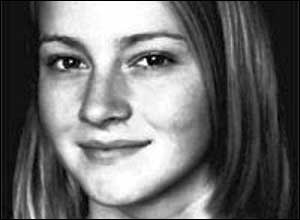A Million Little Pieces, the best-selling Oprah’s Book Club selection by former alcoholic and drug addict James Frey, has been generating a lot of controversy in recent days. It was published as a memoir without a disclaimer warning of embellishments or fiction in the story, but Frey admitted last night on Larry King Live that parts of the book are made-up.
“A memoir is a subjective retelling of events”, he said, calling his book “an imperfect animal”. He defended the parts he had fictionalized, saying they were not important to the overall story (less than 5 percent of the narrative, he said), and that he “stood by the essential truth” of his book.
He also said the “genre of memoir” is new and its boundaries are still being defined. As the interview was drawing to a close, Oprah called in, defending Frey and saying that she thought the most interesting part of the controversy was how it would affect publishers and the memoir genre.
I watched the entire interview and based on what I heard from Frey, A Million Little Pieces is more novel than memoir.
Frey kept saying he stood by the “essential truth” and “emotional truth” of his book. It’s common for novels to be based on personal experiences, in fact, I’d go so far as to say most great novels are drawn from personal experience to at least some extent. The best novels are so good because they maintain that “essential truth”, which is what I was talking about in my Digital Kayak article from a couple of days ago:
[John Updike] writes about the ordinary lives of ordinary Americans in an extraordinary way. He truthfully reflects reality in his characters and stories.
Frey acknowledges that he originally tried to publish the book as a novel, but couldn’t get publishers to take it as such. The exploding popularity of memoirs certainly makes writing it – and publishing it – as one tempting. Given the number of times it was rejected as a novel, it may have never seen the light of day if it weren’t for the memoir label.
However, by Frey’s own admission the book blurs the line between fiction and non-fiction in some parts. Does that matter?
I think it’s important to look at the author. Memoirs (which are not a new genre, as both Frey and Oprah claimed last night – Rousseau’s Confessions, considered a classic in the genre, was published in 1781) are most often written by famous people. When they’re written by former presidents and world leaders, they are often used by historians and others seeking a better understanding of the past as seen by key players.
But Frey is not a key player in world events, he’s an ordinary guy who’s suffered through and overcome drug and alcohol addiction. No one reads Frey’s book to get an accurate account of, say, the car wreck that killed his friend when he was in high school. The book is, as he made manifestly clear, about his experiences in rehab.
Frey’s book is flexible on the details but truthful on the essentials. Contrast this to many – if not most – memoirs by the people who “matter”, like former politicians and world leaders. These memoirs pack in the details but frequently manage to obscure the “essential truth” that Frey compellingly maintains.
In other words, Frey’s memoir is a big truth with a bunch of little lies tagged on, instead of a big lie wrapped in a lot of little truths. If world leaders were questioned as aggressively as Frey has been, we’d all be better off for it. But recovered addicts and quirky authors make easier targets than presidents.
By all accounts, A Million Little Pieces is an incredible book that has had an important impact on many lives. This reputation isn’t going to disappear because of this controversy. Instead, I think it will make everybody who reads memoirs take them with a bigger helping of salt, which is a positive development that I hope people are still holding on to by the time GW gets around to publishing his.
I think we’ll also see more disclaimers on memoirs in the future, including the next edition of A Million Little Pieces perhaps. As for Frey’s future, I think if anything this solidifies his success. Now he can get on to doing what he clearly does best: writing novels.

 twitter.com/adriandz
twitter.com/adriandz
